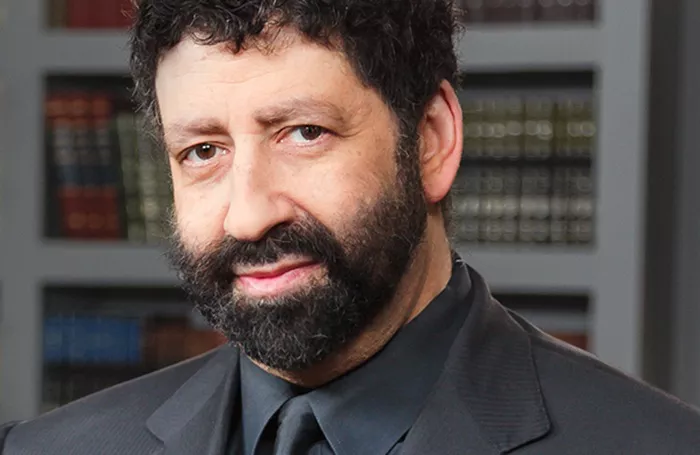In a bid to address recent tensions surrounding the portrayal of Jewish history in Hollywood, author and film historian Sam Wasson has reissued Rabbi Burns, a 1931 satirical novel by Aben Kandel. This move comes in response to accusations of antisemitism directed at the Academy Museum of Motion Pictures over its portrayal of Hollywood’s Jewish founders.
Wasson, widely recognized for his bestselling works on figures such as Francis Ford Coppola, is reintroducing the book through his independent press, Felix Farmer Press. The novel, originally published in 1931, follows the fictional journey of a Los Angeles rabbi determined to build a “million-dollar temple”—the equivalent of over $20 million today—and who contemplates entering the film industry.
Rabbi Burns is a satirical reimagining of the real-life story of Edgar Magnin, who served as the senior rabbi of Wilshire Boulevard Temple for more than six decades. The temple, the oldest synagogue in Los Angeles, is known for its rich history and its close ties to Hollywood, with art donations from key industry figures reflecting Magnin’s deep connections to the film world.
In a recent interview with The Hollywood Reporter, Wasson described the novel as “frank and funny and fearless about Jewishness,” highlighting the importance of both pride and critical reflection within Jewish culture. He emphasized that Jewish identity often involves “criticism and interpretation,” qualities embodied by the moguls of Hollywood who shaped the industry.
The reissue of Rabbi Burns comes amidst ongoing controversy surrounding the Academy Museum’s exhibit on Jews in Hollywood. The exhibit, which opened after a two-year delay following protests from the Jewish community, was criticized for its portrayal of Hollywood’s Jewish founders. In response to these concerns, Wasson and his team felt it was important to release the novel at this moment, reinforcing the diverse voices within Jewish heritage and the film industry.
Brandon Millan, co-founder of Felix Farmer Press, remarked, “It feels important to share this book with this community right now,” underscoring the relevance of the novel in today’s cultural climate.

